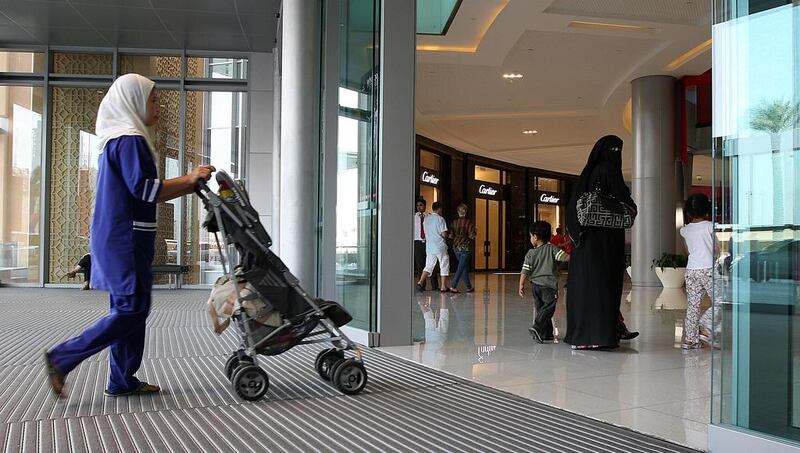It is often said that family strengthens the fabric of society. But a lot has changed over the years as to how we live our lives, how we spend our time and how we interact with each other.
The family structure in the UAE has changed just as dynamically: many couples are now opting to marry at a later age, have fewer children and, more importantly, women are taking an ever increasing role in the financial support of the family due to higher education levels and employment success.
However, what I feel has had the most significant impact on family structure is the addition of a new member who didn’t really exist when times were tougher. Namely, the Khadama, which is the Arabic term for housekeeper. People may have different names for the family member, such as the nanny or the maid, but this person is usually from overseas and is paid a monthly wage to stay with us.
Now you may be curious as to why I call the Khadama a family member rather than simply an employee or a helper. Well, the reason is that the Khadama is playing an increasingly vital role in her host family. She cooks, she cleans, she does the laundry, she gets the children ready for school, she picks them up from school, she takes care of them on family outings, and so on.
It may hurt to hear this, but a Khadama often now has arguably a more important role in the smooth running of a family than either the mother or father. If a Khadama decided to stop working, the kids might not be properly taken care of, the house would be a mess, the father could come home to find no food on the table and the mother could be left wondering why her new abaya isn’t ironed for her to wear to work.
It’s scary to think that a young woman brought into our homes as a helper could have such an impact on our way of life, but that is just the problem – she doesn’t “help”, she manages, and that is where things have gone wrong. We have given away ownership of our responsibilities as homeowners, adults and parents.
Think about all the nannies waiting around at the end of school or the usual image of them holding the kids in the middle of the mall as the father and mother walk a slight distance ahead in their own little world. Through this relationship we have blurred the line between what constitutes a helper in the family versus a member of the family, and nannies jump back and forth across that divide everyday.
My wife and I have two children and we were blessed with a strong support network with both sets of parents living fairly close by, allowing us to get some time alone if we needed it. Like almost every other family, we hired a nanny to help as my wife continued her studies and I worked full-time. We also fell into the trap of outsourcing a lot of responsibilities to our nanny that should have been ours: the small things like changing the baby’s nappy, getting the food ready or running small errands.
Then two years ago my wife, my two boys, and I moved to the United States to allow me to complete my graduate studies, where we had no household help and we knew nobody. All we had was each other. My wife and I did absolutely everything around the house for our children and for each other. It was difficult and exhausting, but I tell you this, we were never closer and more loving of each other than in those moments.
We did everything together. If our youngest son – he was three months old at the time – needed milk we all went to get some. If my wife had an appointment at the hospital, we would all get in the car and go there with her. If my eldest son wanted to go out and play, we all went out and played. It was beautiful.
Those are some of the most important habits that we have brought back with us from our time in the US.
We remind ourselves that no matter how much support we have from external sources, extended family or nannies, what truly brings us closer as a family is when we do things together. We all need help sometimes, but that is where it should end – with “help” and not complete ownership for how we live our lives.
I read a telling quote a few days ago aimed at parents that said: “The most precious jewels you will ever have around your neck are the arms of your children.” Nothing has rung truer in my life than that. In the end your true wealth is in having a loving, warm and connected family – and that starts with relying less on help, and relying more on each other.
Khalid Al Ameri is an Emirati social commentator
On Twitter: @KhalidAlAmeri





